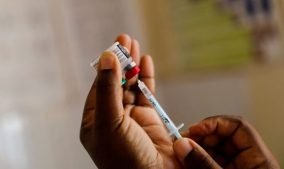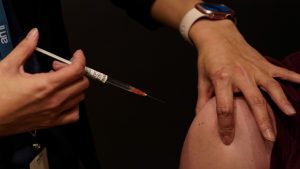About 15 % of the South African population belongs to a medical aid schemes, which gives them access to private quality healthcare. However, the coronavirus pandemic is seemingly destabilising the industry.
“A large number of people who are on medical schemes are employed or are in semi-formal employment. That would be a massive impact in most of the schemes because the ones that can’t afford right now will drop off but then those that are currently on are probably going to have to pay more in the following year to make up for the fact that contributions have gone down and they may have to end up falling off in the following year so it really is a big concern,” says Dr Lungi Nyathi, Managing Executive at Medscheme with a membership of 3 million people.
The Government Employee Medical Scheme (GEMS) says while it is assured of premiums from its members who are government employees, it is concerned about the long-term effects of the pandemic.
“The biggest concern is how long is this going to last? The impact is on the members. Members have had to adjust to a new way of life. We budget every year usually our budget for the subsequent year is finalised around September so by the time we finalised our budget for 2020 we did not have any idea that we would have a pandemic. So the biggest concern is that this is something that was not planned for,” says Principal Officer at GEMS, Dr Stan Moloabi.
The Board of Healthcare Funders (BHF) says the risks to medical schemes have changed drastically with the arrival of COVID-19.
“The risks that schemes face is around the economy. Schemes have got a cushion for high claims in the form of reserves that they have but these reserves are kept as investments and we’ve seen reports of investments being eroded. Some of the schemes have already said that they have lost as much as 16 % of the value of the reserves. People off medical aid schemes will be forced to access public health care, which is currently overburdened,” says Managing Director at BHF, Dr Katlego Mothudi.
Government is currently rolling out the National Health Insurance (NHI), which should be accessible to all South Africans.
Deputy Director General in the Health Department, Dr Anban Pillay, says government will work on stabilising the economy first, as it continues with plans for the NHI.
“All medical scheme members would eventually get on to the NHI fund. We would obviously start with those who currently don’t have a medical aid. I think it’s important also to appreciate that COVID-19 has highlighted why a national system of healthcare is very important to respond to diseases such as COVID-19. Remember COVID-19 doesn’t know whether you’ve got medical aid or not, whether you are rich or poor, whether you are black or white or any of those things. It just basically spreads quite easily.”
Discovery Health says it is treading more carefully to prevent exhausting all its savings and reserves, which will come in handy during the anticipated tough economic times ahead.
Medical aid schemes expect to spend millions due to COVID-19
Medical Aid Schemes estimate that they will spend over R2 billion just on COVID-19 testing and treatment. They say they’ve been forced to be strategic about how they manage the global pandemic.
GEMS, which covers public servants, says it estimates it will spend close to R1 billion, while Medscheme estimates their costs at half a billion.
Lower rates
Medscheme, which looks after 17 medical schemes, has had to negotiate for lower rates with the pathology laboratories for testing for COVID-19.
The scheme’s Dr Nyathi says, “We’ve also had to do some negotiations with the pathology labs for better testing. You will remember that when the tests initially came in the private sector, they were just over 1 400 and we’ve been able to negotiate down to 850. It’s where we are now.”
In the video below, South Africa’s healthcare is discussed:






